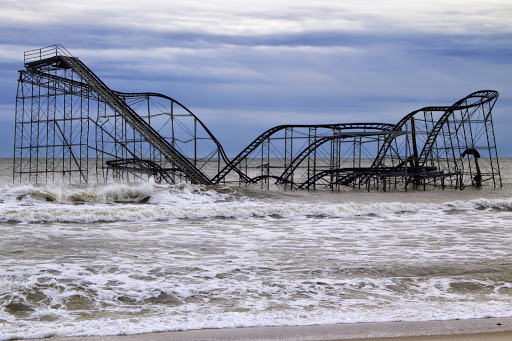June 4, 2014
Risky Business Brings New Message—and Messengers—to Climate Debate
Posted by kcompton
By Kate Gordon, Executive Director, Risky Business
 Despite massive scientific evidence that climate change will have significant effects on the American economy, the business and finance world is still largely turning a blind eye to climate risk. Former New York City Mayor Michael Bloomberg, former Treasury Secretary Henry Paulson, and Farallon Capital founder Tom Steyer started the Risky Business initiative to change this dynamic and create a new shared understanding of the risks and costs of climate change in the United States.
Despite massive scientific evidence that climate change will have significant effects on the American economy, the business and finance world is still largely turning a blind eye to climate risk. Former New York City Mayor Michael Bloomberg, former Treasury Secretary Henry Paulson, and Farallon Capital founder Tom Steyer started the Risky Business initiative to change this dynamic and create a new shared understanding of the risks and costs of climate change in the United States.
For years, climatologists and geophysicists – many affiliated with the American Geophysical Union – have warned that climate risk is here and growing. We know with certainty that our atmosphere and oceans are warming at an alarming rate; that sea levels threaten to put trillions of dollars of assets literally underwater; and that whole sectors of our economy face new challenges and costs as a result of changing environments. But even in the face of this overwhelming evidence, the climate debate in the United States continues to stall out over partisan bickering about the exact science underlying those impacts, or the precise solutions being proposed to mitigate them.
The Risky Business initiative rejects both fights, and instead takes a classic risk approach to the issue of climate change within the United States. In doing so, our goal is to transform climate risk into something regularly studied and evaluated by American businesses, on the same level as other critical risks like inflation, supply chain stability, or price volatility.
Last summer, our three co-chairs commissioned a risk assessment of the costs of climate change to the U.S. economy. The analysis builds upon years of scientific evidence of climate change and its causes, including the Intergovernmental Panel on Climate Change assessments and National Climate Assessments, and puts those into a standard risk management framework. It combines the best available climate science with the most up-to-date econometric modeling to create a range of risk scenarios including the low-probability, high-impact “tail risks” that are a necessary part of any comprehensive risk assessment. To provide actionable and relevant information to American businesses, the project looks at climate impacts at a granular level to assess potential impacts to certain sectors over time.
To that end, the co-chairs convened a bipartisan Risk Committee comprised of leaders from across business and government, representing the diverse geographical regions of the country. They bring extensive experience and well-respected voices to the table; moreover, for some of the Risk Committee members, this initiative represents their first foray into the national climate dialogue. The group also includes a wide diversity of opinion about the best path forward to address the challenge. Among them are Keystone XL supporters and opponents, advocates of immediate mitigation, and advocates of measured adaptation. Common to all is the belief that climate change is a category of risk we can no longer afford to ignore.
While our overarching goal is to make a case to the business and financial communities, we also hope to provide a new set of analytical tools to the research and academic communities that have worked for years in climate science and economics. We recognize that our research is not definitive, and so we are making our methods entirely transparent and available to the public for scrutiny and replication.
The project will formally launch on June 24th and 25th in New York City and Washington, D.C. We hope it will jump-start a broader conversation across the U.S. economy about how different regions and sectors can begin to respond to climate risks, getting on a new—and less risky—path going forward.
Kate Gordon is the Executive Director of the Risky Business initiative and VP and Director of the Energy & Climate Program at Next Generation, a San Francisco-based policy research and strategic communications non-profit. Ms. Gordon will be speaking at the 2014 AGU Science Policy Conference June 17-18 in Washington, D.C.

